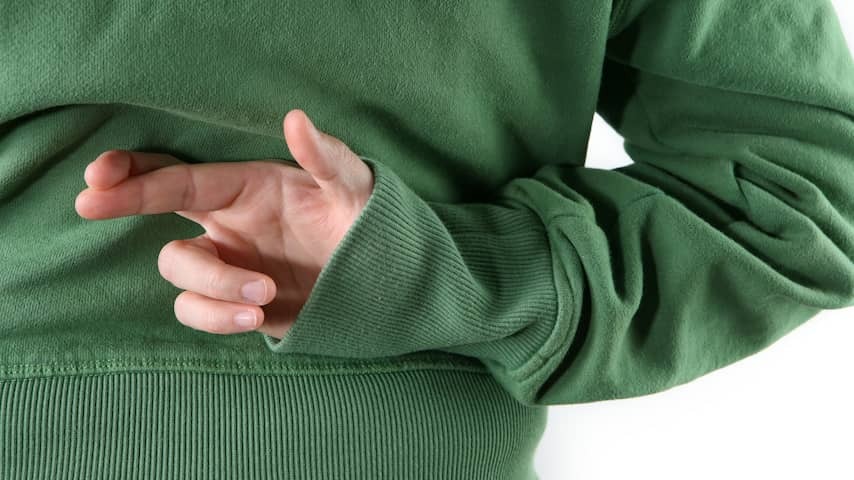
Concealing something, twisting the truth, or simply making something up: we all lie sometimes. But how bad is it to occasionally tell a white lie?
You probably lie more often than you think. Maybe even without realizing it. Whether that’s bad depends entirely on the intention of the lie, according to Ronald Poppe, associate professor at Utrecht University and lie expert.
“We don’t like it when people lie to us, but the reason for the lie matters.” He observes that we find lies that benefit the liar the worst. Social lies that aim to help someone are more acceptable.
With these so-called white lies, you’re trying to do something for someone else, says Rianne Kok. She works as an associate professor at Erasmus University Rotterdam and researches parents’ lying to their children. “Because you’re afraid, for example, that you’ll hurt or sadden the other person with the truth.”
And then there are also situations in which a white lie is not only beneficial to the other person but also to yourself. “Think about the question of whether you like someone’s new dress. You might recognize this: people often lie to avoid an awkward situation.” Such a white lie is much more accepted and not really seen as something bad.
A lie to spare someone also counts
“But lying is consciously saying something you know is not true,” she says. So, even saying you like someone’s dress when you don’t, even if it’s to spare the other person. She observes that lying in common parlance is more readily attributed to people with a selfish motive. “Calling a white lie ‘lying’ feels too heavy.”
Yet you are indeed lying. But is that bad? Poppe cites a study that shows that lying becomes easier the more we do it. “So, in that regard, white lies are a gray area: ultimately, they lower the threshold for lying about other matters.”
We already lie more often than we think. “People often can’t remember that they lied. When you ask people themselves, they indicate that they tell an untruth twice a day. But it often turns out to be a lot more when you examine it sentence by sentence. Also, that average is significantly raised by a small percentage of people who lie very often.”
Can also be patronizing
And although a white lie can occasionally be useful for keeping things pleasant, it also has a downside. “A positive comment is often more useful than being honest and confrontational. But if it comes out, it’s often not appreciated because we like to have an honest view of others,” says Poppe.
Kok thinks that white lies can also be quite patronizing. “Because you decide that the other person doesn’t need to know the truth or can’t handle it. Whereas, if you honestly say that that dress doesn’t suit the other person so well, they can do something with that.” Yet, according to her, it’s not realistic to strive to always be honest. “People quickly find you unpleasant, and it’s complicated.”
Think about why you’re lying
Conversely, you might not always want to hear the truth either but are simply looking for a compliment. What you think of it or should do with it therefore depends on the situation and the person, says Kok. “Important for yourself is to at least think carefully about why you are telling an untruth.”
It will never be as clear as with the fairy-tale character Pinocchio. Yet you can sometimes also see when someone is lying. For example, by paying attention to body language or word choice. But everyone can do that in a different way. One nervously pulls at their hair, another avoids eye contact, and yet another adds all sorts of details that are irrelevant, Poppe knows. Kok adds: “But if you want to be sure that someone is honest, you will sometimes have to explicitly ask for it.”